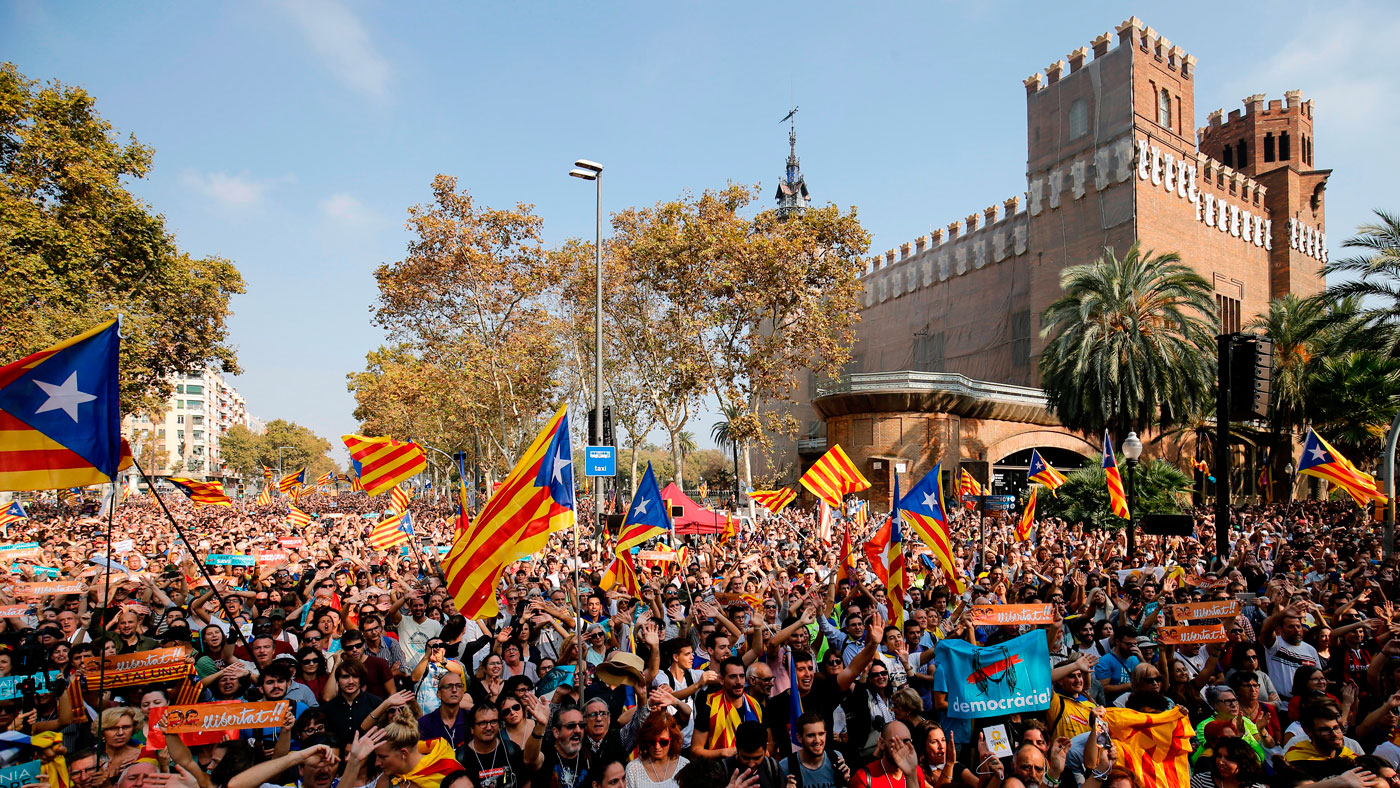Will Catalonia ever gain independence?
Spanish PM says independence bid has ‘failed’ after conviction of 12 Catalan leaders

A free daily email with the biggest news stories of the day – and the best features from TheWeek.com
You are now subscribed
Your newsletter sign-up was successful
Spain’s Supreme Court has convicted 12 Catalan separatist leaders on charges of sedition, disobedience and misuse of public funds.
Most of the charges stem from the region’s controversial 2017 independence referendum, which the Spanish government declared illegal and attempted to shut down, later rescinding Catalonia’s autonomy.
The 12 defendants – a mix of Catalan government officials and activists – were subjected to a four-month hearing in Madrid, during which they claimed they were victims of injustice and false charges.
The Week
Escape your echo chamber. Get the facts behind the news, plus analysis from multiple perspectives.

Sign up for The Week's Free Newsletters
From our morning news briefing to a weekly Good News Newsletter, get the best of The Week delivered directly to your inbox.
From our morning news briefing to a weekly Good News Newsletter, get the best of The Week delivered directly to your inbox.
The BBC reports that the longest prison sentence – 13 years – was handed to Oriol Junqueras, the former vice-president of Catalonia and the highest-ranking pro-independence leader on trial, for sedition and misuse of public funds. Former Catalan leader Carles Puigdemont, considered the lead architect of the referendum, is still in exile and was not involved in the trial.
The sentencing prompted violent protests in Barcelona, while Spain’s acting prime minister, Pedro Sanchez, said it is the end of the road for a secessionist movement that he claimed had “failed”, Politico reports.
Sanchez’s top adviser Manuel Albares backed up these claims, adding: “I hope the sentence will become a wake-up call for the independence camp and that they see it as an opportunity to turn the page.”
But in declaring an end to the Catalonia saga, are they being too hasty? Catalonia’s regional president Quim Torra has already called on citizens across the region to greet guilty verdicts with “a huge show of non-violent civil disobedience”, and while the clamour for independence appears to be simmering down, can a resurgence in the future be ruled out entirely?
A free daily email with the biggest news stories of the day – and the best features from TheWeek.com
What happened in 2017?
In September of that year, amid a growing wave of sentiment for Catalan independence, regional president Carles Puigdemont “ignored warnings from the Spanish government and the country’s constitutional court and pushed ahead with a unilateral referendum” on the issue, The Guardian reports.
Despite the Spanish government deploying thousands of police officers to Catalonia, the vote went ahead on 1 October. According to the government of Catalonia, 90% of voters opted for independence from a turnout of 42%.
MPs in the region passed a declaration of independence on 27 October 2017, but around an hour later the Spanish government enacted Article 155 of the country’s constitution, rescinding all Catalan autonomy and suspending its parliament. It was repealed around a year later.
Puigdemont and others fled the country and have had a number of arrest warrants issued against them in the years since. They remain in exile.
What will the convictions mean for future independence movements?
According to pro-independence figures, today’s decision to convict 12 Catalan leaders will see the region enter a “new phase in the struggle for independence”.
Writing in The Guardian, Puigdemont said that there “now only one possible route that the Catalan nation can follow”, adding that “if Catalonia is to survive and to protect its institutions and culture, it must now become an independent state in the form of a republic”.
He also notes that the appetite for independence is backed up by facts, as pro-independence parties in Catalonia “gained an unprecedented level of support in the European parliament elections held in May this year”.
Furthermore, direct action – including the blocking of roads and railway lines – is expected from activists in the coming days, indicating that support for the movement is still strong.
Government officials in Madrid, however, have already ruled out another referendum and taken a hard stance against Catalan separatists.
Acting PM Sanchez has reportedly warned that his caretaker government could re-apply Article 155 if unrest becomes too severe.
To outsiders, the situation is bleaker for Catalan independence. The Guardian reports that the movement has “lost momentum” since the referendum and “any answers to the Catalan question are likely to remain as elusive as ever”.